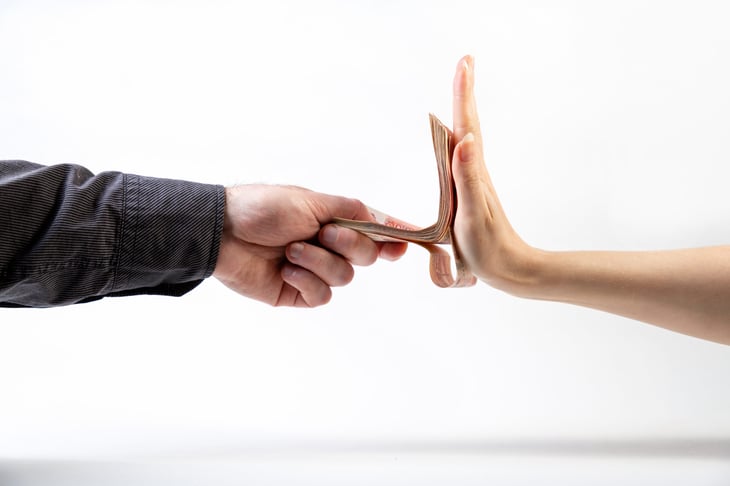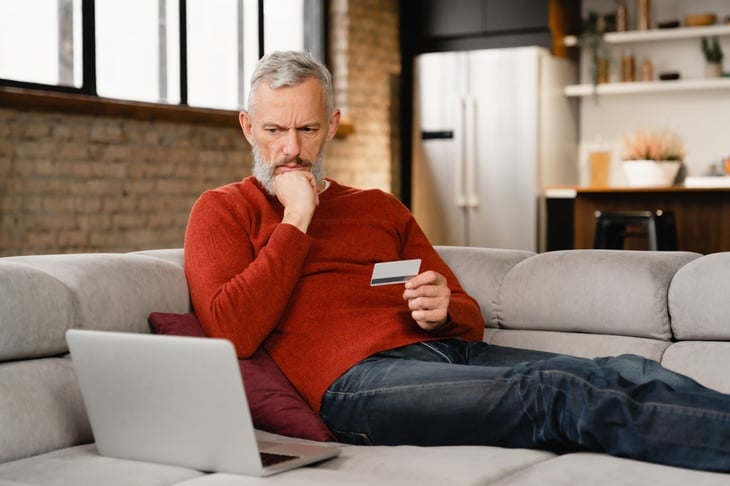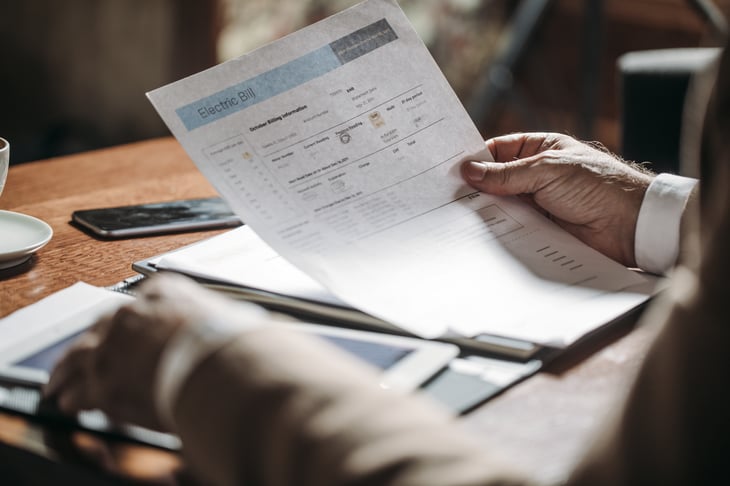
Of all the things that are slowly becoming obsolete in our modern world, cash might be the most surprising. Some businesses are even refusing to take cash at all, preferring electronic payment methods. And there are often advantages to paying with credit.
Seattle-area certified financial planner Mindy Crary says that while she used to always make sure she had cash on hand, she doesn’t worry about it now.
“I think all the old cash rules are gone now,” Crary tells Money Talks News. “I also think it’s easier to protect yourself using a credit card.”
Meredith Stoddard, group team lead for awareness and engagement for Fidelity Investments, agrees.
“I personally rarely carry any cash at all and tend to default to electronic mechanisms even for tipping these days,” Stoddard says. She tells Money Talks News: “I live in an urban area and have noticed that even the kids’ lemonade stands take Venmo.”
But remember, a credit card isn’t free money. Stoddard notes that some people try to pay for certain things in cash because they budget better that way. “If you’re going to use credit, it is ideal to pay it off each month before you accrue interest payments,” she warns.
With that in mind, here’s a look at some things you should not pay for with cash, whether in the form of actual banknotes, check or debit card.
1. Online purchases

Buying something online, perhaps from an unfamiliar website, can be risky. (I once bought an arts-and-crafts style rug that turned out to be more of a flimsy mat.) And while your debit card may look a lot like a credit card, they’re not the same.
“I would never, ever use my debit card online,” says Crary. “It just doesn’t have the same protections as a credit card!”
Stoddard agrees. “While debit cards do offer some protection in alignment with the Electronic Funds Transfer Act as long as you report the issue quickly, many credit cards often offer stronger fraud protection,” she says. “The challenge with a debit card is that your cash is gone while it gets resolved. With a credit card, it’s your credit that is temporarily reduced, but you’re not out any cash during that time.”
To learn about other purchases you shouldn’t pay for with a debit card specifically, check out “9 Things You Should Never Put on a Debit Card.”
2. Cars

“Most people paying cash for cars don’t walk in with stacks of bills,” Stoddard notes. “It’s more likely that they do a wire transfer from their bank, an electronic transfer initiated by the dealer that they sign off on, or a cashier’s check.”
Although a car loan may feel like a multi-year drag compared with paying for your vehicle upfront, Crary points out that you can actually save money by investing that cash and choosing to finance your car.
“Typically, you can earn more on money invested over the life of a car loan than the interest you save,” she says. “Plus, I’d rather people keep a healthy cash reserve than zero out their (emergency fund) cushion for a large purchase.”
3. Utility bills

Stop messing with paper envelopes, checks and postage stamps. It’s easier and smarter to pay your bills online with a credit card — if for no other reason than you’re not at risk of forgetting and having a service shut off.
“I have all of my utilities on my credit card and set up to auto pay,” Crary says. “It’s so simple now. And it relieves me from that instant panic you get when you realize you haven’t thought about those things in a while.”
Stoddard also notes that automatic billing can help with tracking expenses and recordkeeping at the end of the year when it comes time to do your taxes.
4. Concert or event tickets

So that concert you’re longing to see is sold out? You may be tempted to turn to an online marketplace where you’re buying from a person as opposed to an event venue. It seems obvious, but be wary when buying an event ticket from a stranger.
Stoddard agrees credit cards give you some peace of mind here but warns that fans who want to rock out should still be careful. Using your credit card might mean you can get your money back if you get scammed, but you’ll likely still miss the actual concert or show.
“This is an area where it’s important to either buy direct from the concert venue or to look into the vendor you’re buying it from to understand their policies,” she says.
5. Travel

If you’re getting back into traveling after a pandemic hiatus, you likely know how complicated trip planning can be.
“It’s smart to use a credit card for most big-ticket items, like travel, that involve a lot of logistics,” Crary says. “That way you have a paper trail, but also, the credit card company can be your advocate if things go wrong.”
Also, Stoddard points out that some credit cards offer such perks as free checked bags on a flight or car rental insurance.
“Definitely research the cards you have to see what they offer,” she says. “Or shop around for the perks you will use most.”
6. Electronics with warranties

Some credit card companies offer an extended warranty on specific items, such as an appliance or computer, when paid for with credit. Don’t pass up such benefits.
“These (perks) vary by credit card and type of purchase,” Stoddard warns. “You’ll need to research your cards to know what benefits you have prior to making purchases.”
Need help finding a credit card with such perks? Visit the Money Talks News Solution Center and browse the best credit cards.
7. Rent

Credit card rent payments give renters a paper trail that can come in handy in numerous ways, Stoddard says. A landlord herself, she notes that she accepts electronic payments from her renters.
“Some states give a tax deduction for rent paid, so you’ll need some form of proof on it,” she says. “No matter (whether you use credit or cash), make sure you have a record of your transactions in the event of a dispute or for tax purposes.”
8. Home maintenance and improvement

As with rent, Stoddard says it’s important to have a paper trail when paying for home repairs and improvements. Paying with credit makes that paper trail easier, though it’s not the only way.
“One thing to note with major home improvements is that the money spent can add to the cost basis of your home when you sell, potentially reducing the taxes you owe on the price appreciation,” Stoddard says. “So you want to keep both the invoices and evidence that you have actually paid.” Keep this documentation for the entire duration you own your home and even a few years beyond in case you get audited.





Add a Comment
Our Policy: We welcome relevant and respectful comments in order to foster healthy and informative discussions. All other comments may be removed. Comments with links are automatically held for moderation.